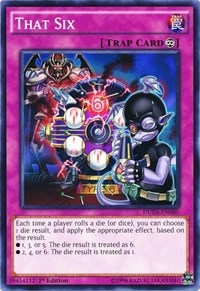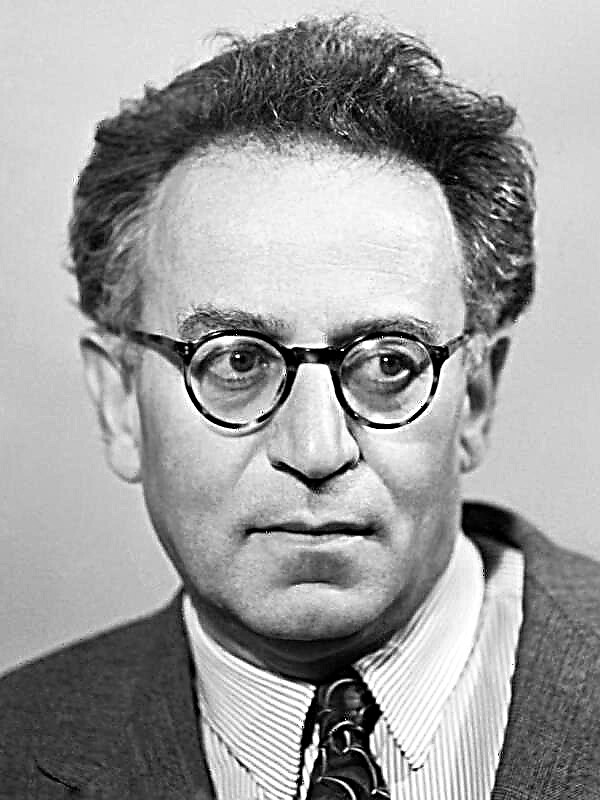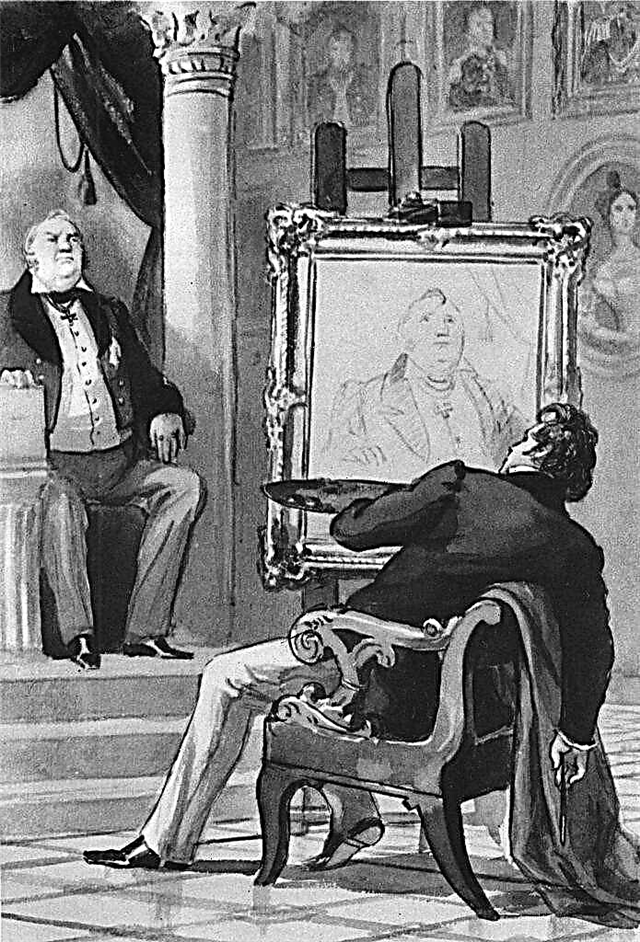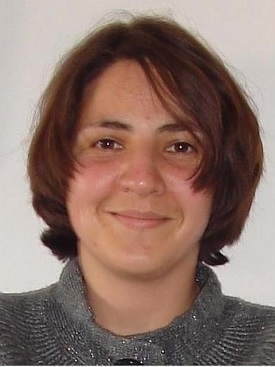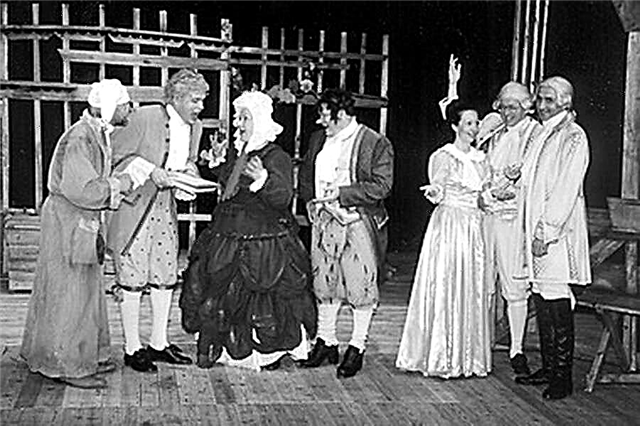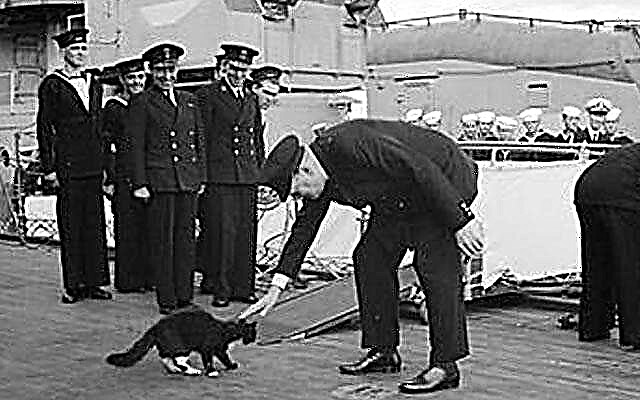The story is on behalf of Ph.D. Serenus Zeitblom. Born in 1883, he graduates from the gymnasium of the town of Kaisersashern, then the university, becomes a teacher of classical languages and has a family.
Adrian Leverkun is two years younger. He spends his early childhood at the parent's estate, not far from Kaisersacher. The whole lifestyle of the family, in which there are two more children, embodies integrity and a strong commitment to tradition.
In Adrian, the ability to science is manifested early, and he is sent to a gymnasium. In the city, he lives in the uncle's house, which holds a musical instrument store. Despite the brilliant successes in his studies, the boy is distinguished by a somewhat arrogant and secretive disposition and loves loneliness for years.
At the age of fourteen, Adrian first finds an interest in music and, on the advice of his uncle, begins to take lessons from the musician Wendel Kretschmar. He, despite a strong stutter, gives fascinating public lectures on the theory and history of music and instills a delicate musical taste in young people.
At the end of the gymnasium, Adrian Leverkun studies theology at the University of Halle, where he also moved to Zeitblom. Among the professors there are many interesting people: for example, the teacher of the psychology of religion, Schlepfus, presents to his students the theory of the real presence of magic and demonism in human life. Observing Adrian in a society of peers, Zeitblom more and more convinced of the extraordinary nature of his nature.
Leverkün continues to maintain contact with Kretschmar and, when he is invited to the conservatory in Leipzig, moves too. He is disappointed in theology and is now studying philosophy, but he himself increasingly gravitates to music. However, Kretschmar believes that the atmosphere of such an educational institution as a conservatory may be disastrous for his talent. On the day of arrival in Leipzig, Adriana is taken to a brothel instead of a tavern. A girl with almond-shaped eyes approaches a young man who is alien to debauchery and tries to stroke her cheek; he rushes away. Since then, her image does not leave him, but a year passes before the young man decides to find her. He has to go after her to Bratislava, but when Adrian finally finds a girl, she warns him that she is sick with syphilis; nonetheless, he insists on intimacy. Returning to Leipzig, Adrian resumes classes, but soon finds himself forced to see a doctor. Without completing the treatment, the doctor suddenly dies. An attempt to find another doctor also ends unsuccessfully: the doctor is arrested. More a young man decides not to be treated.
He enthusiastically composes. His most significant creation of that period was the cycle of songs to the verses of the romantic poet Brentano. In Leipzig, Leverkün makes acquaintance with the poet and translator Schildknap, who is persuaded to compose an opera libretto based on Shakespeare's play "The fruitless efforts of love."
In 1910, Kretschmar received the post of chief conductor of the Lübeck Theater, and Leverkün moved to Munich, where he rented a room from a senator's widow named Rodde and her two adult daughters, Inesa and Clarissa. The house regularly hosts dinner parties, and among Leverkün's new acquaintances there are many artistic audiences, in particular the talented young violinist Rudolf Schwerdtfeger. He persistently seeks Adrian's friendship and even asks to write a violin concerto for him. Soon, Schildknap also moved to Munich.
Finding no peace anywhere, Leverkün leaves for Italy alone with Schildknap. They spend the hot summer in the mountain village of Palestrina. There he was visited by the spouses Zeitblom. Adrian works a lot on the opera, and Zeitblom finds his music extremely amazing and innovative.
Here, an episode takes place with Leverkun, a detailed description of which Serenus Zeitblom finds in his musical notebook much later. The devil himself appears to him and announces his involvement in Adrian’s secret illness and relentless attention to his fate. Satan read Leverkun an outstanding role in the culture of the nation, the role of the forerunner of a new era, which he called the "era of modern barbarism." The Devil declares that, having deliberately contracted a bad disease, Adrian made a deal with the forces of evil, since then the time has come for him, and after twenty-four years, Satan will call him to him. But there is one condition: Leverkun must forever give up love.
In the fall of 1912, friends returned from Italy, and Adrian rented a room in the Schweigestil manor, not far from Munich, which he notes even earlier during his out-of-town walks: this place is surprisingly like his parents' farm. This is where Munich friends and acquaintances begin to visit him.
Having finished the opera, Leverkün is again keen on composing vocal plays. Because of their innovation, they do not meet with the recognition of the general public, but are performed in many philharmonic societies in Germany and bring fame to the author. In 1914, he wrote the symphony "Miracles of the Universe." The world war that has begun does not affect Leverkün, he continues to live in the house of the Schweigestiles and still works a lot.
Inesa Rodde, meanwhile, is marrying a professor named Instoris, although she is burned out by an unspoken love for Schwerdtfeger, which the author herself admits. Soon she comes into contact with the violinist, however, tormented by the consciousness of the inevitability of a break. Her sister Clarissa also leaves her home in order to devote herself to the stage, and the aging senator Rodde moves to Pfeiffering and settles near Leverkun, which at that time is already being taken for the Apocalypse oratorio. He conceived with his demonic music to show humanity the trait to which it is approaching.
In the spring of 1922, Clarissa Rodde returned to her mother in Pfeiffering. Having survived the creative collapse and collapse of hopes for personal happiness, she ends up taking her life by drinking poison.
Leverkün finally hears Schwerdtfeger's requests and dedicates a concert to him, which is a resounding success. His second performance takes place in Zurich, where Adrian and Rudolph get acquainted with the theater artist Marie Godet. A few months later she arrives in Munich, and after a few days the violinist asks Leverkun to woo him. He reluctantly agrees and admits that he himself is a little in love. Two days later, everyone already knows about Rudolph’s engagement with Marie. The wedding should take place in Paris, where the violinist has a new contract. But on the way from a farewell concert in Munich, he meets death at the hands of Inesa Rodde, who, in a fit of jealousy, shoots him right on the tram. A year after the tragedy, the Apocalypse is finally publicly performed. The concert is a sensational success, but the author, due to great mental depression, is not present at it. The composer continues to write marvelous chamber plays, while at the same time he has a plan for the cantata "Doctor Faustus Crying."
In the summer of 1928, Leverkyun was brought to Pfeiffering to visit the younger nephew, the five-year-old Nepomuk Schneidevane. Adrian is wholeheartedly attached to a charming and meek baby, whose proximity is almost the brightest strip in his life. But two months later, the boy develops meningitis and dies in agony in a matter of days. Doctors are powerless.
The next two years become years of intense creative activity for Leverkun: he writes his cantata. In May 1930, he invited friends and acquaintances to listen to his new composition. About thirty guests gather, and then he delivers a confession in which he admits that everything he has created over the past twenty-four years is the work of Satan. His involuntary attempts to violate the devil's ban on love (friendship with a young violinist, the intention to marry and even love for an innocent child) lead to the death of all those who are attached to his affection, which is why he considers himself not only a sinner, but also a murderer. Shocked, many leave.
Leverkun began to play his creation on the piano, but suddenly he fell to the floor, and when he comes to his senses, signs of insanity begin to appear. After three months of treatment in the clinic, the mother is allowed to take him home, and she takes care of him as a small child until the end of her days. When Zeitblom arrives in 1935 to congratulate his friend on his fiftieth birthday, he will not recognize him, and after another five years the brilliant composer dies.
The story is interspersed with author's digressions about contemporary Germany, full of drama about the tragic fate of the "monstrous state", about the inevitable collapse of a nation that decided to put itself above the world; the author curses the power that destroyed his own people under the slogans of his prosperity.

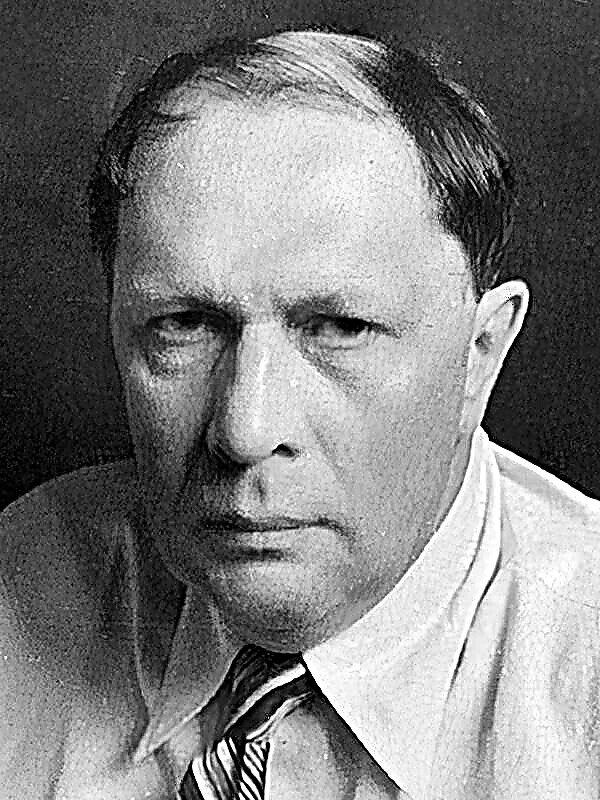 Golden Key
Golden Key


